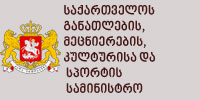
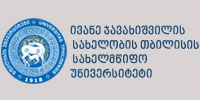
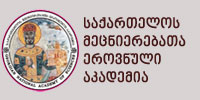
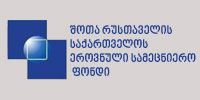
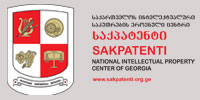
|
|
|||
 |
Extraction of Valuable Products from Agro-Industrial Waste Materials
Winemaking, production of citrus and other branches of agriculture after recycling give a large amount of waste materials, a rich source of commodity products such as oils, natural colorants and antioxidants. In general, valuable products may be obtained from grape seeds and skin, citrus peel and other waste materials by different separation technique, including supercritical fluid extraction, ultrasound-assisted and other extraction methods. This book is dedicated to the application of the methods of sequental extraction and should be useful to professionals in chemistry, or anyone else working in agro-industrial sector of Georgia and other developing countries.
|
||
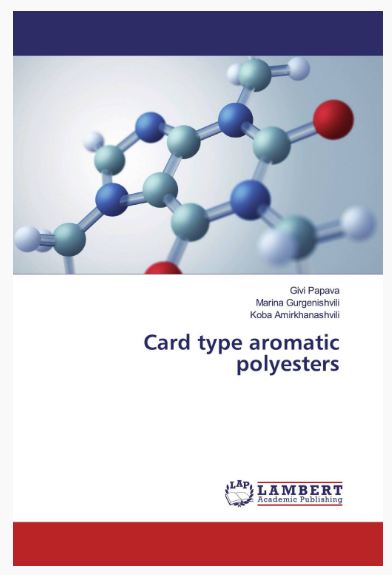 |
Card type aromatic polyesters
The presented monography deals with the very interesting class of polymers – aromatic polyesters. Polymers of this class are characterized by especially high heat- and thermal- stability. Often the melting points of these polymers are higher than their destruction points and makes their thermal processing into different items difficult. Their processing from the solutions of the polymers is mostly limited due to their limited solubility in the solvents. Therefore, the polymers that are simultaneously characterized by good solubility and high thermal stability have special practical importance in different fields of technologies. Such polymers are card type polymers in the macromolecules of which a carbon atom simultaneously belongs both to the main polymeric chain and in the structure of the substituted group. Such polymers appeared to have special properties good solubility and high thermal stability. The present monograph is dedicated to the synthesis and study of the norbornane type card group containing polymers. |
||
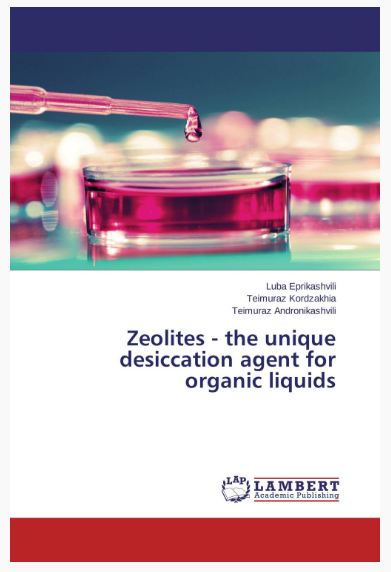 |
|
|
By (author): |
Luba Eprikashvili |
Desiccation or deep dehydration of liquid organic media is of great importance for modern chemical,gas and oil-refining industry. The moisture content in organic liquids decreases the operating ability and reactivity of the product. Furthermore, moisture is released on the walls of pipelines and vessels when organic liquids are supercooled that causes their corrosion. In general, moisture content in organic liquids adversely affects the qualitative characteristics of raw materials and products. Limit moisture content in the liquid medium is restrained by solubility, which decreases with decreasing the temperature. In practice, deep desiccation of liquids and gases is usually carried out by physico-chemical methods (absorption and adsorption). Deep desiccation of organic liquids may be carried out using both synthetic and natural zeolites. Desiccation by zeolites can be performed both in static and dynamic conditions in the gas and liquid phase. This book is dedicated to the research of physical and chemical processes occurring during the desiccation of solvents by zeolites.
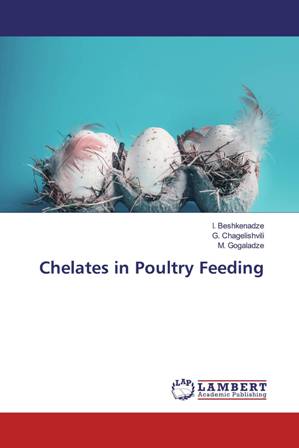
|
By (author): |
I. Beshkenadze |
The synthesis conditions of chelate compounds results of their physical-chemical researches and results of studies conducted on egg-laying birds and broilers. Composition and individuality of synthesized chelate compounds is established through trace element analysis and X-ray graphic study, and melting temperature measurement. Their qualitative solubility in different solvents is studied. Chelates crystalline structure is established by X-ray graphic research method, according to thermographic studies the thermal dissociation of chelates runs stage-by-stage and the composition of the final product of thermolysis depends on metal nature. The organic ligands’ bond character with chelate-forming metals is established on the basis of study of heteronuclear citrate absorption IR spectra. On the basis of carried-out researches aimed to study of biological activity the idea that chelate compounds are more active than single inorganic salts was confirmed once more. It is established that for egg-laying birds takes place: egg production growth, egg weight gain, poultry liveability, egg-shell strength increase, keeping a physiological state of egg-laying birds within the norm.